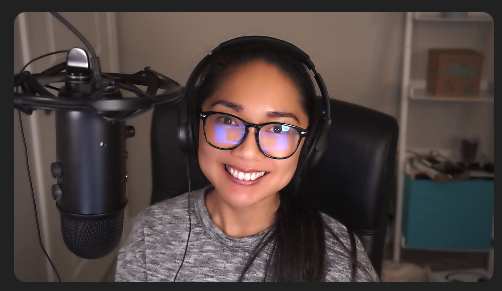
I’ve been hosting the Growth Machine Marketing Podcast for almost four months now. I’ve interviewed top content creators like Steph Smith, marketing executives like Amanda Goetz, and online community friends who are also incredibly talented marketers, like Marc Thomas and Corey Haines.
Hosting a podcast is a lot of work, and while you can automate and delegate certain tasks, there’s one part of the process that can’t be outsourced: guest preparation.
Nailing guest preparation is crucial. This means preparing yourself for the interview and preparing your guest.
Collaborating with your guest ahead of time helps reduce awkward chemistry during the interview, and it sets them up for success. After all, when your guest looks good, you look good.
Here’s my process…
Send a briefing doc
After I confirm an interview time with a guest, I send them a 1.5 page briefing doc of what to expect. This doc includes:
- A few general prompts to think about
- A heads up that I’ll send my prepared questions two days in advance
- What to expect on the day of recording (a request to use a mic if they own one; that the interview will take 45 minutes)
- What to expect post-recording (edits will be minimal; I’ll send promo copy in advance)
- 1 short paragraph about Growth Machine (we’re a fast-growing SEO and content marketing agency!) and our podcast (over 10,000 unique downloads, baby!)
- 2-3 lines of general desired takeaways for our audience
- 1 paragraph about me, the interviewer
I spent a solid two hours writing and editing this briefing doc, and I still make small tweaks to keep it fresh. I spent a lot of time on this because I wanted to remove as much anxiety and uncertainty as possible for my guests.
Research the guest and draft questions
Homework time. I learn about my guest’s expertise. I’ll start an Evernote page and start scribbling notes. I’ll go to their LinkedIn profile and take notes based on their own career descriptions. I’ll follow them on Twitter (if I haven’t already), and take note of any tweet I have follow-up questions on. I’ll read several of their essays if they have a personal site.
And of course, I’ll listen to a handful of their podcast appearances. If my guest hasn’t done a ton of interviews, it’s a bonus for me if I can find their earliest podcast appearance — so I can get the answers to the most basic questions like how they got their start in their career and how they’ve honed their expertise.
My favorite tactic here is to actively listen and write down follow-up questions. I’ll start drafting my question structure, adding the backstory into the question itself.
Ideally, instead of asking, “How did you get your start in content marketing?” I’ll ask, “You’ve said before that you started out in journalism but later pivoted to content marketing. When did you realize you wanted to make the switch?”
While I aim to ask questions that I want to know the answers to and that I think my audience will want the answers to, I also try to delight my guest. I’ll think of questions that I feel confident they’ll nail the answer to, or questions that show I’m paying attention to what they say publicly. It’s these types of questions that help me build rapport and trust with my guests.
My ideal list of questions will be easy to categorize. Maybe there’s a section on my guest’s early career. Then a section on their greatest expertise. Then a section on what really motivates them and why they’re so passionate about what they do. I send this in the form of a Google Doc to my guest two to three days in advance to give them time to ruminate — and to give them time to nix or add topics.
Share promo copy in advance
I first started doing this to ensure I got a guest’s title or work history correct. And I kept doing this after one of my guests, Tommy Walker, not only reviewed the email newsletter copy, but also came up with a dozen killer suggestions for episode title. (His episode is one of my most downloaded interviews!)
Sharing the copy in advance is also a great way to notify your guest when their episode is dropping. It gives them a chance to refresh their memory of what they talked about, and hopefully, it gets them excited to help promote the episode.
One management lesson I’ve learned over the years is that collaborators don’t like to be surprised. Delight them with your incredible attention to detail, yes, but don’t surprise them with a deadline or launch. I take the same approach with my podcast.
Guest prep = managing yourself
If nothing else, putting the time and effort into guest preparation is a great way to manage yourself. Having another person’s reputation attached to yours holds yourself accountable to higher standards.
Doing this upfront work in guest preparation helps to ensure a solid discussion. Adding the structure to your questions helps you craft the episode’s narrative in advance. And doing all this well means that you won’t have to spend as much time on audio editing.
Now I’ll pose the question to you: what advice do you have for me in preparing for interviews?





One Comment